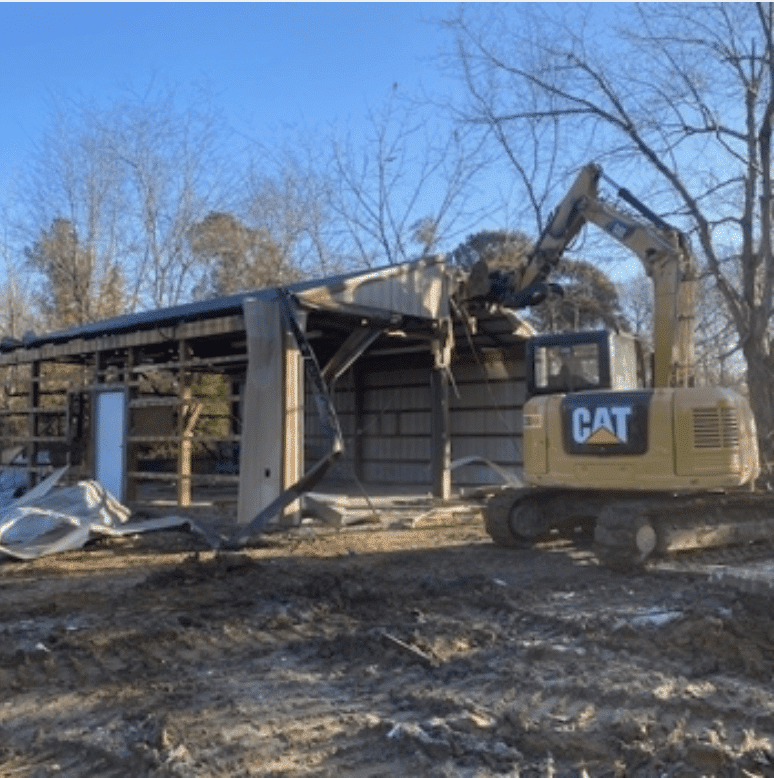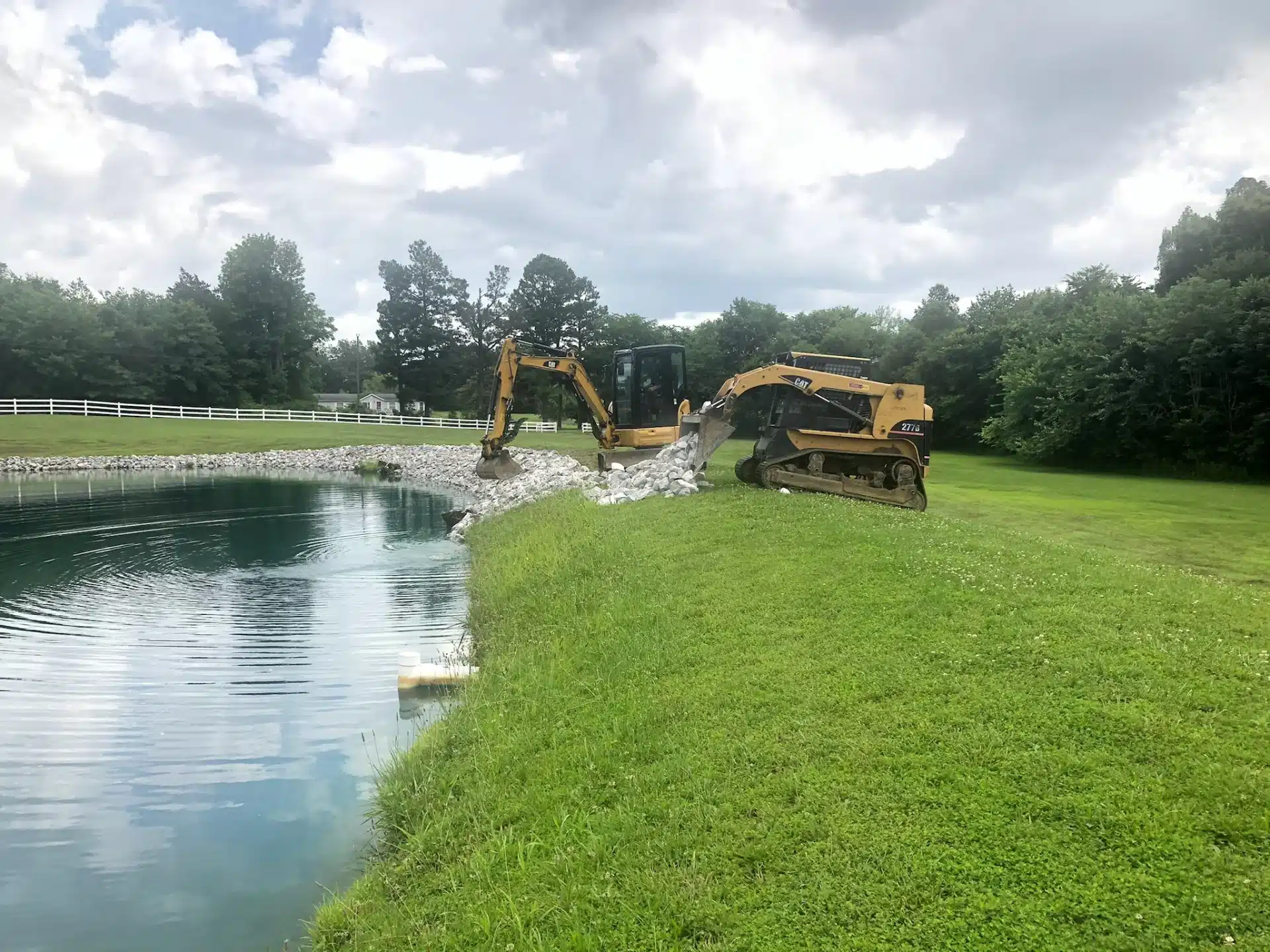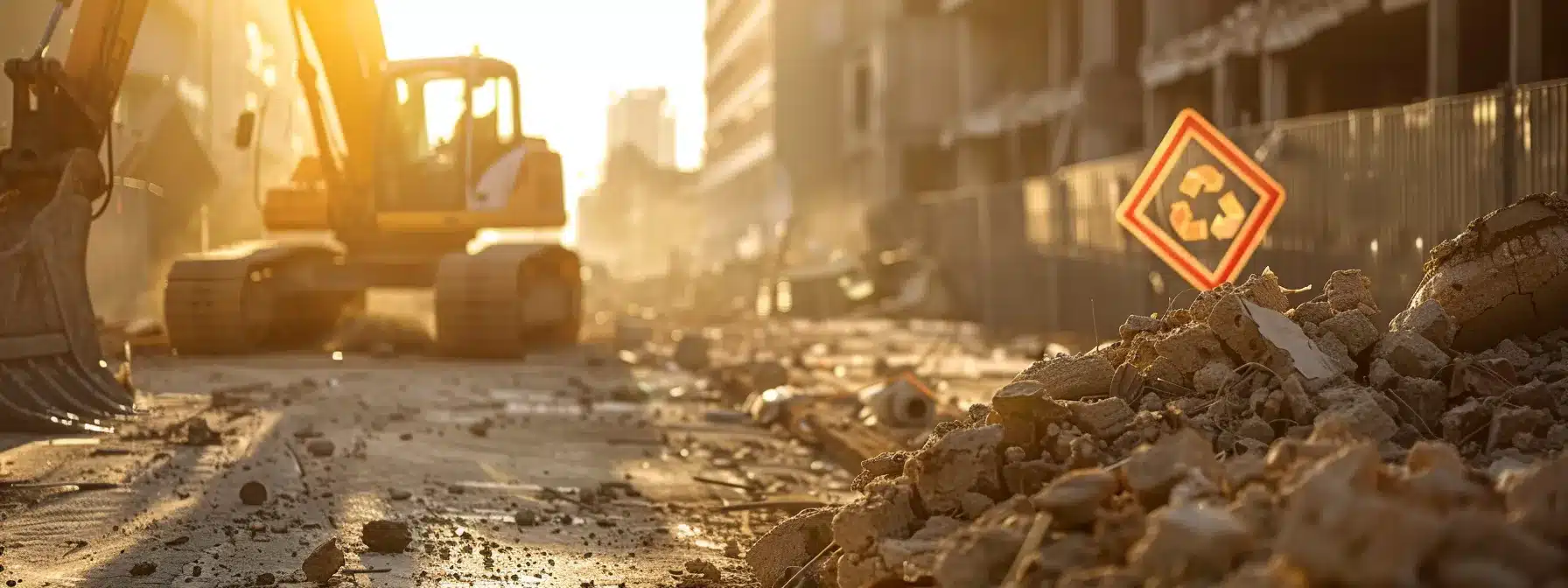Essential Insight for Successful Bidding:
- Thoroughly assess the site before submitting a bid: Failing to assess the site properly can lead to various consequences, including delays, cost overruns, and potential safety hazards. It is crucial to thoroughly evaluate the site’s conditions, soil stability, and any potential obstacles to accurately assess the project requirements and provide an accurate bid.
- Underestimate the scope of the project: Failing to accurately estimate the scope of the excavation project can result in unexpected delays, additional costs, and customer dissatisfaction. Reviewing project plans and specifications in detail is essential to identify all necessary tasks, materials, and resources required for successful completion.
- Account for unforeseen circumstances: It is important to consider unforeseen circumstances and have contingency plans in place. Factors such as weather conditions, underground utilities, and unexpected site conditions can significantly impact the progress and cost of the excavation project. Being prepared for these situations can help mitigate risks and minimize disruptions.
- Adhere to safety protocols: Overlooking safety protocols during excavation can lead to accidents, injuries, and even fatalities. It is crucial to prioritize safety by implementing proper safety measures, providing training to workers, and regularly inspecting the work site to ensure compliance. Safety should always be a top priority to protect the workers and maintain a safe working environment.
- Comply with environmental regulations: Failure to consider and comply with local, state, and federal environmental regulations can result in legal consequences and environmental damage. Understanding and adhering to these regulations, such as proper disposal of hazardous materials and protecting natural resources, is essential to maintain environmental sustainability and avoid penalties.
- Accurately estimate material and equipment costs: Inaccurate estimation of material and equipment costs can lead to financial losses and project delays. Thoroughly research and consider all necessary resources, including materials, machinery, and labor costs, to provide an accurate and competitive bid. Proper estimation ensures that the project remains within budget and avoids unexpected expenses.
- Maintain clear and regular communication with the client: Failing to communicate effectively with the client can result in misunderstandings, delays, and dissatisfaction. Regularly update the client on the project progress, address any concerns or changes promptly, and establish open lines of communication to ensure a successful collaboration throughout the excavation project.
The Importance of Avoiding Mistakes When Bidding for Excavation Work
When it comes to bidding for excavation work, avoiding mistakes is crucial for the success of your project. Thoroughly assessing the site before submitting a bid can make all the difference. It allows you to gather critical information and determine the scope and requirements of the job accurately. By doing so, you can avoid costly surprises or delays down the line. In this section, we will explore the significance of this crucial step and how it impacts the overall outcome of your excavation project. So, let’s dive in and discover why thorough site assessment is essential for successful bidding.
Thoroughly assessing the site before submitting a bid
When preparing a bid for excavation work, it is crucial to carefully evaluate the site to ensure accuracy and avoid potential pitfalls. This process involves analyzing various factors such as project plans, specifications, safety protocols, environmental regulations, material and equipment costs, and effective communication with the client.
Here is a 5-step guide for thoroughly assessing the site before submitting a bid:
- Review project plans and specifications: Carefully examine the details provided to understand the scope and requirements of the project. This includes assessing existing structures, soil conditions, access points, and any specific challenges that may impact the excavation process.
- Conduct a site visit: Physically inspecting the site allows for a more comprehensive evaluation. Look for any potential obstacles or hidden hazards that may not be evident from project documents alone. Take measurements, photographs, and notes to gather accurate information.
- Assess soil conditions: Verify the type of soil present at the site as it can significantly affect excavation methods and costs. Conduct soil tests if necessary to determine its properties and suitability for excavation techniques such as digging or trenching.
- Evaluate logistical considerations: Consider factors like accessibility, staging areas for equipment, proximity to neighboring properties or utilities, and any potential restrictions on working hours or noise levels. These logistical aspects are crucial in creating an efficient plan for completing the excavation work.
- Consider local regulations: Familiarize yourself with local, state, and federal environmental regulations that may apply to your project. Ensure compliance with permits needed for excavation activities and address any potential environmental impacts through appropriate mitigation measures.
It is essential to note that by thoroughly assessing all these aspects before submitting a bid accurately reflects the complexity of the bidding process in excavation work.
Why take the risk of bidding blind when assessing the site can save you from digging your own grave?
Mistake #1 – Failing to Assess the Site
When it comes to hiring excavation services for your project, one of the biggest mistakes you can make is failing to thoroughly assess the site. This oversight can have serious consequences that can impact the success of your project.
According to the reference data, inadequate site assessment can lead to delays, increased costs, and even safety hazards. It is crucial to understand the potential consequences of not thoroughly assessing the site before hiring excavation services.
Let’s delve into the expansion of this critical mistake and uncover the risks involved.
Potential consequences of not thoroughly assessing the site
Thoroughly assessing the site before submitting a bid is crucial as it helps avoid potential consequences of not thoroughly assessing the site. These consequences could include delays in completion, unexpected costs, and compromised safety. By conducting a thorough assessment, contractors can identify any potential challenges or risks that may impact the project and develop effective strategies to mitigate them. This helps ensure that the project runs smoothly, stays within budget, and meets all requirements and specifications.
In addition to potential delays and unexpected costs, not thoroughly assessing the site could also lead to poor project planning and coordination. Without a comprehensive understanding of the site conditions, contractors may underestimate the resources needed for excavation work or fail to account for any constraints that could affect their operations. This can result in inefficient workflows, missed deadlines, and subpar quality of work.
Furthermore, not conducting a thorough assessment of the site can have legal and financial implications. Contractors who fail to comply with environmental regulations or overlook safety protocols may face heavy penalties and legal consequences. Additionally, if unforeseen circumstances arise during excavation due to insufficient assessment, contractors may incur significant financial losses from delays, damage repairs, or rework.
A real-life example illustrating the potential consequences of not thoroughly assessing the site can be seen in a construction project where the contractor failed to adequately assess soil conditions before starting excavation work. As a result, they encountered unexpected underground utilities that had been inaccurately mapped by previous surveys. This led to extensive delays as additional time was needed to relocate utilities and redesign the excavation plan. The contractor incurred substantial costs for these unplanned activities and suffered damage to their reputation due to missed project deadlines.
Overall, it is imperative for contractors to recognize the potential consequences of not thoroughly assessing the site before bidding for excavation work. By conducting a comprehensive evaluation, they can anticipate challenges, accurately estimate costs and resources required for the project, comply with regulations, ensure worker safety, and ultimately deliver successful outcomes for their clients.
Thinking a project is small when it’s actually a colossal headache – the importance of accurately estimating the scope of excavation work.
Mistake #2 – Underestimating the Scope of the Project
When it comes to hiring excavation services for your project, one of the biggest mistakes you should avoid is underestimating the scope of the project. This can lead to cost overruns, delays, and overall dissatisfaction with the results. To prevent this, it’s crucial to review project plans and specifications meticulously. By doing so, you can accurately estimate the scope of the project and ensure that the excavation services you hire are equipped to handle the job efficiently. Don’t make the mistake of overlooking this crucial step—it can make all the difference in the success of your project.
Reviewing project plans and specifications to accurately estimate the scope
Reviewing project plans and specifications plays a crucial role in accurately estimating the scope of a construction project. This process involves carefully analyzing the project documentation to gain a comprehensive understanding of the required tasks and deliverables. Here are five key points highlighting the importance of this step: – Understanding the project plans ensures that all necessary tasks are identified and accounted for in the bid. It helps in avoiding any oversights or omissions that could lead to costly delays or disputes later on. – Examining the specifications allows for a detailed evaluation of the materials, equipment, and labor needed for the project. This enables a more accurate estimation of costs, ensuring that bids are competitive yet profitable. – Reviewing project plans also helps identify any special requirements or unique aspects that may impact the scope. This includes factors such as site conditions, access limitations, or specific client preferences, which must be taken into consideration during cost estimation. – By carefully assessing every aspect of the project plans and specifications, potential risks can be identified and managed effectively. This proactive approach ensures that appropriate measures are taken to address unforeseen circumstances and challenges that may arise during excavation work. – Properly reviewing project plans also aids in developing an efficient timeline for completion. Understanding key milestones and deadlines allows for effective scheduling of resources and manpower, optimizing productivity throughout the project. In addition to these points, it is worth noting that reviewing project plans and specifications also serves as a foundation for clear communication with clients. The detailed understanding gained from this review facilitates effective discussions regarding expectations, timelines, and deliverables. Pro Tip: Consider involving relevant stakeholders, such as engineers or architects, during the review process to gain additional insights and clarify any uncertainties. Their expertise can contribute to a more accurate estimation of the scope and enhance overall project management. Excavation work is full of surprises, so it’s best to plan for the unexpected and avoid turning your project into an archaeological mystery.
Mistake #3 – Not Accounting for Unforeseen Circumstances
When it comes to hiring excavation services for your project, it’s crucial to consider the possibility of unforeseen circumstances and to have a contingency plan in place. Trust me, I’ve learned this the hard way. Failure to account for unexpected challenges can lead to costly delays, budget overruns, and frustration. In this section, I want to emphasize the importance of considering unforeseen circumstances and highlight the necessity of having a well-thought-out contingency plan. Let’s dive in and discover how a proactive approach can save you from potential headaches down the line.
Importance of considering unforeseen circumstances and having a contingency plan
Thoroughly assessing the site before submitting a bid is crucial to ensure the success of excavation projects. One must understand the importance of considering unforeseen circumstances and having a contingency plan in place. By doing so, potential risks and challenges can be anticipated and prepared for, minimizing disruptions and delays.
When unforeseen circumstances arise during excavation work, such as encountering unexpected soil conditions or uncovering buried utilities, it can significantly impact project timelines and budgets. Therefore, by considering these possibilities from the outset and developing a contingency plan, contractors can mitigate the negative effects of such situations.
In addition to considering unforeseen circumstances, it is important to regularly communicate with clients throughout the project. This fosters transparency and allows for any changes or issues to be quickly addressed. By maintaining open lines of communication, both parties can collaboratively adjust plans if necessary, while keeping the project on track.
A real-life example that emphasizes the importance of considering unforeseen circumstances involves a construction company bidding on an excavation project without thoroughly assessing the site beforehand. As a result, they encountered underground utilities that were not accounted for in their original bid. This led to costly delays as they had to halt work while addressing this issue. Had they considered these unforeseen circumstances and developed a contingency plan, they could have avoided such setbacks and completed the project more efficiently.
Don’t dig yourself into a hole by ignoring safety – follow the protocol, and your project won’t be six feet under!
Mistake #4 – Overlooking Safety Protocols
When it comes to hiring excavation services for your project, safety should be a top priority. This section focuses on one crucial mistake to avoid – overlooking safety protocols. Safety protocols are in place to prevent accidents and injuries, ensuring a smooth and secure excavation process. By discussing the importance of adhering to these protocols, we aim to highlight the potential risks of neglecting safety measures and emphasize the significance of maintaining a safe working environment on construction sites.
Ensuring adherence to safety protocols to prevent accidents and injuries
To ensure the prevention of accidents and injuries, it is crucial to strictly adhere to safety protocols. This involves following established guidelines, implementing appropriate safety measures, and regularly monitoring and enforcing compliance on site. By ensuring adherence to safety protocols, potential hazards can be identified and addressed promptly, minimizing the risk of accidents. This includes conducting regular safety inspections, providing adequate training to workers, and maintaining clear communication channels for reporting any concerns or incidents. Furthermore, promoting a culture of safety within the organization is essential. This can be done through ongoing training programs, recognizing and rewarding safe practices, and establishing a comprehensive incident reporting system. In addition to these measures, it is important to stay up-to-date with industry standards and regulations related to workplace safety. Regularly reviewing and updating safety protocols based on changing requirements ensures that the project remains in compliance with legal obligations. Overall, ensuring adherence to safety protocols not only protects workers from harm but also safeguards the reputation of the company. By prioritizing safety throughout the project duration, accidents and injuries can be significantly reduced or even prevented altogether. A true story that highlights the importance of adhering to safety protocols involves a construction company that failed to enforce proper fall protection measures on a high-rise building project. As a result, a worker fell from a significant height and sustained severe injuries. The company faced legal consequences for its negligence in failing to ensure adherence to safety protocols. This serves as a reminder of why strict adherence is vital in preventing accidents and injuries on construction sites. Mistake #5: Going green ain’t just a color, it’s a whole set of regulations to excavate in.
Mistake #5 – Not Considering Environmental Regulations
”
When it comes to hiring excavation services for your project, it’s essential to avoid the mistake of not considering environmental regulations. Failing to understand and comply with these regulations can lead to serious consequences for both your project and the environment. Local, state, and federal environmental regulations are in place to protect natural resources, prevent pollution, and ensure sustainable practices. In this section, we will explore the importance of understanding and adhering to these regulations, providing you with valuable insights to avoid potential legal and environmental pitfalls. According to a report by the Environmental Protection Agency, non-compliance with environmental regulations can result in hefty fines and penalties, compromising the success and reputation of your project (EPA, 2021). So, let’s dive in and ensure that your excavation project aligns with the necessary environmental regulations.
”
Understanding and complying with local, state, and federal environmental regulations
Understanding and adhering to environmental regulations set by local, state, and federal authorities is crucial for ensuring compliance with the law. Complying with these regulations helps protect the environment and maintain sustainability in excavation projects. It involves understanding the specific guidelines and requirements related to waste disposal, pollution prevention, land disturbance, and other aspects that may have an impact on the environment. When undertaking excavation work, it is essential to be aware of the applicable environmental regulations that govern the project area. This includes understanding any permits or licenses that may be required and following proper procedures for obtaining them. Failure to comply with these regulations can result in legal consequences, fines, or even project shutdowns. In addition to understanding the regulations, it is equally important to implement measures to ensure compliance throughout the project. This can involve having designated personnel responsible for overseeing environmental compliance, conducting regular inspections and monitoring activities, training employees on best practices, and maintaining accurate records of compliance efforts. A notable historical incident that emphasizes the significance of understanding and complying with environmental regulations is the Exxon Valdez oil spill in 1989. The tanker ran aground in Prince William Sound, Alaska, resulting in one of the largest oil spills in U.S. history. The incident led to massive environmental damage, including extensive harm to wildlife and ecosystems in the area. It highlighted the devastating consequences that can arise from not adhering to regulations designed to protect our environment.
Mistake #6 – Inaccurately Estimating Material and Equipment Costs
When it comes to hiring excavation services for your project, accurately estimating material and equipment costs is crucial to avoid any potential financial losses. In this section, I’ll shed light on the common mistake of inaccurately estimating these costs and provide insights on how to navigate this challenge effectively. By understanding the importance of accurate cost estimation and implementing best practices, you can ensure that your project stays within budget and avoid any unexpected financial setbacks.
Accurately estimating costs to avoid financial losses
Accurately estimating costs is crucial to avoid potential financial losses. By diligently assessing material and equipment costs, excavation companies can mitigate the risk of underestimating expenses and encountering budget overruns. This practice safeguards against unforeseen circumstances and allows for effective resource allocation. A comprehensive understanding of project plans, specifications, and requirements enables accurate cost estimation. Neglecting this essential step can lead to substantial financial setbacks, negatively impacting the overall success of the excavation project.
In addition to accurately estimating costs, excavation companies must also consider other factors that contribute to financial losses. Adhering to safety protocols is paramount in preventing accidents and injuries, avoiding potential legal liabilities and costly medical expenses. Compliance with environmental regulations is equally important, as failure to do so may result in fines or penalties. Clear communication with clients throughout the project ensures that any changes or unexpected issues are promptly addressed, minimizing delays and additional expenses.
One real-life example highlights the devastating consequences of inaccurate cost estimation. A construction company miscalculated material costs for an excavation project, leading to a significant overrun in expenses. This error resulted in severe financial losses for the company, jeopardizing its reputation and stability within the industry. Accurate cost estimation and thorough assessment of all relevant factors could have prevented this unfortunate outcome.
Don’t let miscommunication dig a hole in your project – keep the client in the loop!
Mistake #7 – Failing to Communicate with the Client
When it comes to hiring excavation services for your project, one mistake that can have significant consequences is failing to communicate effectively with the client. Maintaining clear and regular communication is essential for a successful outcome. It ensures that both parties are on the same page, minimizing misunderstandings and preventing delays or costly errors. By understanding the importance of communication in excavation projects, you can establish a strong working relationship with your client and ensure the smooth progress of your project.
Importance of clear and regular communication with the client
Effective Communication with Clients: Enhancing Project Success
Clear and regular communication with clients is essential for ensuring a successful excavation project. By maintaining open lines of communication, excavation contractors can ensure that client expectations are met, potential issues are addressed in a timely manner, and the project progresses smoothly.
From the initial bid submission to the completion of the project, ongoing communication is crucial. It allows both parties to stay updated on progress, address any concerns or changes in plans, and maintain a collaborative relationship.
Furthermore, clear communication ensures that clients are fully informed about the project’s status, timelines, and any challenges encountered along the way. This transparency helps build trust and confidence between the contractor and client.
By actively listening to client feedback and addressing their questions or concerns promptly, excavation contractors can proactively manage any potential misunderstandings or conflicts. This fosters a positive working relationship and minimizes the likelihood of costly delays or errors.
Pro Tip: Establishing clear channels of communication from the outset of a project sets a solid foundation for its success. Regularly informing clients about progress updates and seeking their input boosts client satisfaction while enhancing overall project outcomes.
Some Facts About Mistakes to Avoid When Hiring Excavation Services for Your Project:
- ✅ Not thoroughly assessing the site before hiring excavation services can result in unexpected expenses and project delays. (Source: Team Research)
- ✅ Underestimating the scope of the excavation project can lead to underbidding and financial losses. (Source: Team Research)
- ✅ Failing to account for unforeseen circumstances can result in unexpected expenses and delays during the project. (Source: Team Research)
- ✅ Overlooking safety protocols when hiring excavation services can put workers and the project at risk of accidents and injuries. (Source: Team Research)
- ✅ Not considering environmental regulations when hiring excavation services can lead to fines and penalties for non-compliance. (Source: Team Research)
FAQs about Mistakes To Avoid When Hiring Excavation Services For Your Project
Question: What is the first mistake to avoid when hiring excavation services for your project?
Answer: The first mistake to avoid is failing to assess the site terrain thoroughly. This can lead to unexpected expenses, delays, and accidents. It’s important to assess the terrain, soil conditions, and potential hazards before submitting a bid.
Question: How can underestimating the scope of the project impact your excavation work?
Answer: Underestimating the scope of the project can lead to underbidding, resulting in financial losses. It’s crucial to carefully review the project’s specifications and plans to accurately estimate the project’s cost and determine a fair bid.
Question: Why is it important to account for unforeseen circumstances when bidding for excavation work?
Answer: Excavation work can have unpredictable situations. Contractors should account for unforeseen circumstances to avoid unexpected expenses and project delays. Having a contingency plan in place will help address these situations and provide flexibility in the bidding process.
Question: What safety protocols should contractors prioritize when hiring excavation services for their project?
Answer: Contractors should prioritize wearing personal protective equipment, implementing safety measures, and providing safety training for all workers on the site. It’s essential to follow all safety protocols and ensure proper equipment maintenance and inspection to prevent accidents and injuries.
Question: How can contractors ensure compliance with environmental regulations when hiring excavation services?
Answer: Contractors should familiarize themselves with local, state, and federal environmental regulations. It’s important to have a plan in place to comply with these regulations and minimize the impact of excavation work on the environment.
Question: Why is effective communication with the client crucial when hiring excavation services?
Answer: Effective communication helps avoid misunderstandings and ensures the project meets the client’s expectations. Contractors should discuss project timelines, address client concerns or questions, and provide regular progress updates to maintain a strong client relationship.
Supreme Enterprises LLC
Looking for reliable excavation solutions? Look no further! With over 16 years of experience, our skilled professionals at Supreme Enterprises specialize in excavation. Our cost-effective solutions cater to all property types. Take the first step by calling us today at (270) 205-4108 and let us handle your excavation needs with utmost precision and expertise













